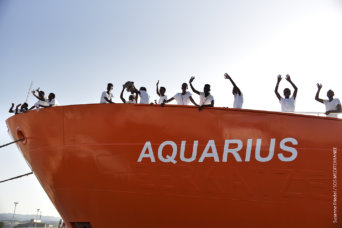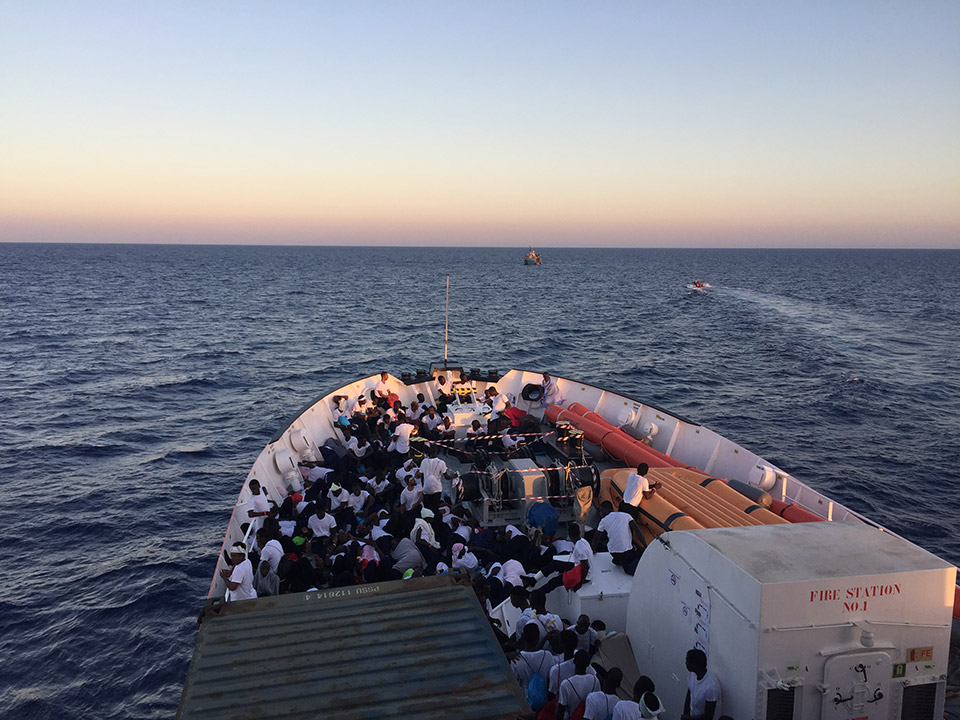- About
- Topics
- Picks
- Audio
- Story
- In-Depth
- Opinion
- News
- Donate
- Signup for our newsletterOur Editors' Best Picks.Send
Read, Debate: Engage.
| located: | Spain, Italy |
|---|---|
| editor: | Maria João Morais |
Since the mass exodus of refugees began to arrive in Europe in 2015, the city of Valencia, Spain, has had a measure put in place to receive migrants in search of a safe harbour. Yet three years on, this Saturday will see the measure used for the first time as the city receives 629 migrants rescued in the Mediterranean sea by the ship Aquarius. This has been made possible thanks to the new President of the Spanish Government, Socialist Pedro Sánchez's offer to shelter the migrants fleeing conflict and violence.
Unfortunately, the significant gesture of Sánchez occurred as a result of a decision made by the new Italian Interior Minister Matteo Salvini (leader of the xenophobic League party) to close the country's ports to the NGO’s SOS Mediterranean ship. Besides breaking international law on refugee support, the attitude of the new Italian government shows new levels of inhumanity, using the lives of more than 600 people as a form of blackmail to the other European Union countries.
However, even though this time Spain has stood up for European values to solve this specific crisis, the essential problem is far from settled. The fallout following Italy’s rejection of the Aquarius boat, which among the hundreds of people was carrying 123 minors and several pregnant women, only exposed the open fracture between the various member states.
It is, therefore, important to remember that the EU hasn’t done enough to help countries such as Greece or Italy with the massive influx of immigrants to their shores. This crisis shows there is an urgent need to reform the European asylum system, known as the Dublin regulation, in order to deliver a human solution based on responsibility and solidarity.
In order to fight humanitarian emergencies in the Mediterranean, where thousands of migrants die each year, all member states must carry out their responsibilities and fulfil their obligations. However, the divisions within the EU and the growth of the populist bloc against the reception of refugees makes it doubtful that the European Council discussing the reform of the Dublin regulation later this month will make significant headway in the right direction. In the meantime, unless drastic action is taken, the Mediterranean may continue to be the grave of men, women and children trying to safely reach Europe.
Photo: SOS Méditerranée

